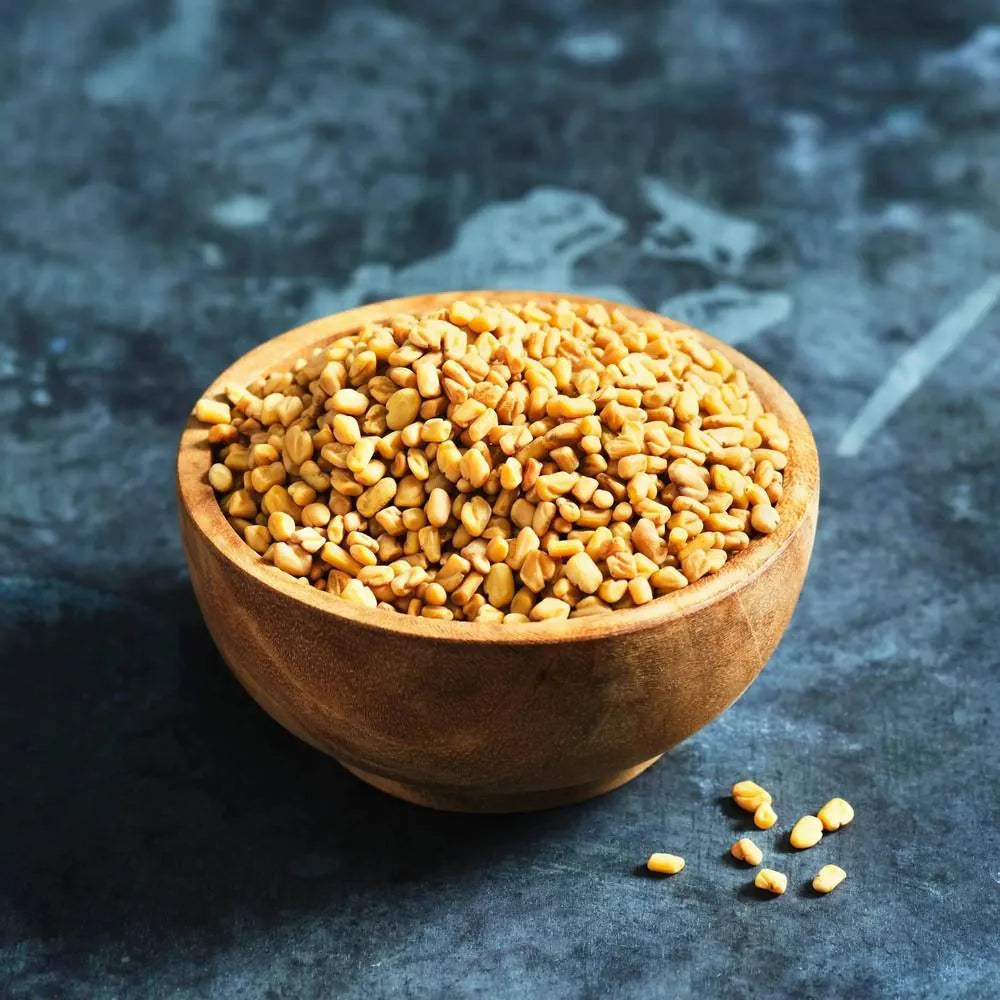Fenugreek Sprouting Seeds – Crunchy, Aromatic & Packed with Goodness
Looking to add serious flavour and nutrition to your meals? Fenugreek Sprouting Seeds are your one way ticket. With a sweet curry aroma and a satisfying crunch. Perfect for salads, sandwiches, or even smoothies, these little powerhouses are as versatile as they are healthy. And boy, are they healthy! According to the National Center for Biotechnology Information, fenugreek seeds have gained recognition for helping manage both Type 1 and Type 2 diabetes, including improving insulin sensitivity.
Why You’ll Love Our Fenugreek Sprouting Seeds
Not all sprouts are created equal—ours are top-notch, easy to grow, and packed with detoxifying benefits. If you find the flavour a tad strong (hey, we get it!), just mix them with alfalfa or red clover for a milder taste. Either way, you’re in for a nutrient-packed treat that supports digestion, metabolism, and overall wellness.
Super Simple to Sprout at Home
No green thumb required! In just 5 days, you can have fresh, crunchy fenugreek sprouts ready to go. Here’s how:
- Rinse 3 tbsp of seeds and soak in water for 4 hours.
- Drain, rinse well, and let them sit for a few hours.
- Rinse and drain 2-3 times daily until they’re ready to harvest.
Too easy, right? Before you know it, you’ll be sprinkling these flavourful sprouts on everything.
Health Benefits That Speak for Themselves
Packed with vitamins, minerals, and antioxidants, fenugreek sprouts are a natural way to boost your diet. Whether you’re into clean eating, experimenting in the kitchen, or just love fresh homegrown goodness, these seeds won’t disappoint.
Ready to give it a go? Grab your Fenugreek Sprouting Seeds today and start growing your own little garden of goodness—no backyard needed!
Live Rates – Weight & Destination Based
Shipping is automatically calculated at checkout based on your order’s weight and delivery address. We use real-time rates from Australia Post and other carriers to provide the most accurate cost.
Handling Time
Orders are packed and dispatched within 0–2 business days (Monday–Friday).
Estimated Delivery Time
Transit times depend on your location:
• Metro areas: usually 2–3 business days
• Regional/rural areas: 5–10 business days
• WA & TAS: may take longer due to state biosecurity inspections
Tracking
All orders include tracking. You’ll receive an email with your tracking link once your parcel has shipped.
Authority to Leave (ATL)
Couriers may leave parcels in a safe place if you are not home. Please provide delivery instructions at checkout if you prefer otherwise.
Pickup Option (Riverstone, NSW)
Please place your order on our website and select “Pick up” at checkout. Wait for us to contact you to confirm and arrange a pickup time. Do not come to our warehouse without an appointment — pickups are strictly by arrangement only. Allow 2–3 business days for preparation; we’ll notify you when your order is ready.
Biosecurity (WA & TAS)
Certain seeds are restricted under state biosecurity laws. Customers are responsible for ensuring products comply with local regulations. Please check with the WA Department of Primary Industries and Regional Development or the Tasmanian Department of Natural Resources and Environment before ordering.
For the full details, see our Shipping Policy.
No Change-of-Mind Returns
We do not accept returns or refunds for change-of-mind purchases.
No Exchanges
We do not accept product exchanges. All sales are final unless covered by Australian Consumer Law.
Your Rights Under Australian Consumer Law
Your ACL rights still apply. You’re entitled to a refund or replacement if your item is faulty, misdescribed, or incorrect. Please contact us within 7 days of delivery with your order number and photos if applicable. Once approved, we will provide a prepaid return label and process a refund or replacement. Refunds are issued to your original payment method within 10 business days.
90-Day Seed Germination Guarantee
If your seeds fail to germinate within 90 days of purchase, we will re-test the batch. If our test confirms poor germination, we will provide a refund or replacement. Seeds must be stored and used according to our instructions; please retain packaging or batch details if available.
For the full policy text you can also see our policy page at /policies/refund-policy.
Seed FAQ
Seeds don't expire, but their ability to sprout weakens over time. With proper storage, your seeds will remain viable for years, ensuring a high germination rate for every batch of fresh sprouts.
Key Storage Tips:
- ✅ Keep it Cool, Dry, and Dark: The best place to store seeds is in a location that's away from heat, light, and humidity.
- ✅ Use an Airtight Container: Jars or sealed bags are ideal. For extra protection against moisture, you can add a silica gel packet.
- ✅ Consider Refrigeration: For long-term storage, keeping seeds in the fridge or freezer is a great option. Just be sure to let them return to room temperature before you use them.
Sprouting Seed Viability Guide
Here's how long you can expect some of our most popular seeds to last when stored correctly:
- 1–2 Years: Mung beans, peas, lentils, and chickpeas.
- 3–4 Years: Alfalfa, radish, fenugreek, and mustard.
- 4–5 Years: Broccoli, wheatgrass, sunflower, buckwheat, and clover.
If you're unsure about older seeds, you can perform a simple germination test. Place a few seeds on a damp paper towel inside a sealed bag. Keep them moist and check the number of sprouts after 5–10 days to see if they are still viable.

